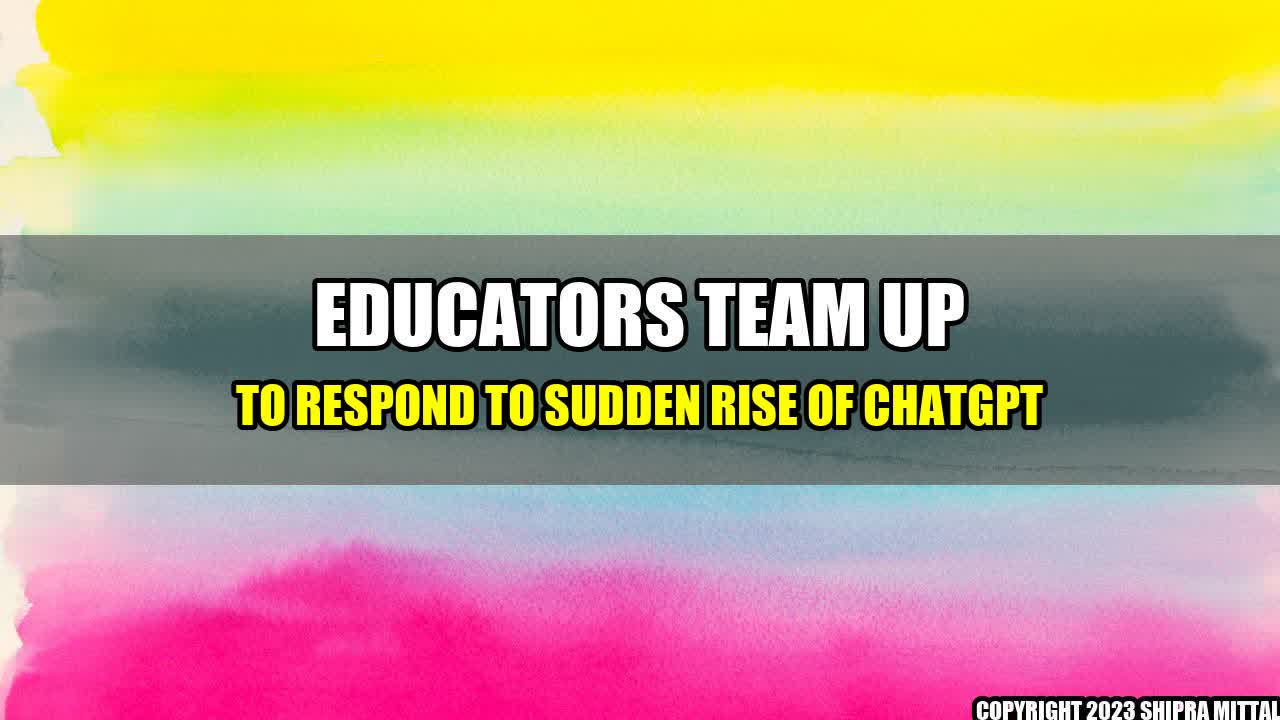
It was just another typical Monday morning for David, a high school teacher preparing to start his virtual class for the day. He logged onto his computer to find a flood of messages from his students, all sharing their latest "ChatGPT" scores.
Confused, David did some quick research and discovered that ChatGPT was a new chatbot platform that students were using to help them cheat on their assignments and tests. Like many educators across the country, he was suddenly faced with a new and unexpected challenge in remote learning.
David's story is just one of many that have emerged in recent weeks. A survey conducted by EdSurge found that 73% of educators have encountered some form of cheating in remote learning. Of those surveyed, 56% reported that they believed ChatGPT was being used by students to cheat.
But it's not just cheating that educators are concerned about. ChatGPT and other chatbot platforms can also be used to spread disinformation and engage in cyberbullying. As students spend more time online, it's important for educators to be aware of these potential risks and take proactive steps to address them.
Despite the challenges posed by ChatGPT, many educators are finding creative ways to respond. Across the country, teachers are teaming up to share strategies for identifying and preventing cheating. Some are even turning to technology as a solution, by using plagiarism detection software or building their own chatbots to provide instant feedback to students.
Schools and districts are also getting involved, by organizing workshops and training sessions for faculty on best practices for remote learning. By working together, educators are able to share their experiences and expertise to develop effective strategies and avoid getting overwhelmed by the challenges.
Akash Mittal Tech Article
Share on Twitter Share on LinkedIn